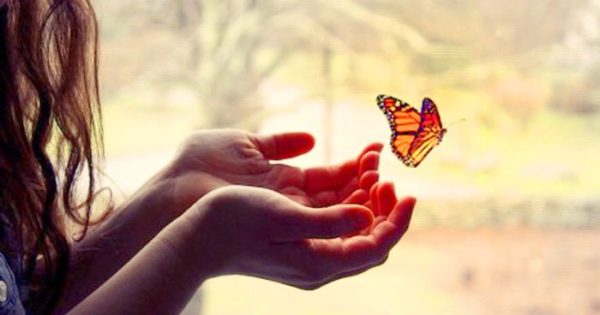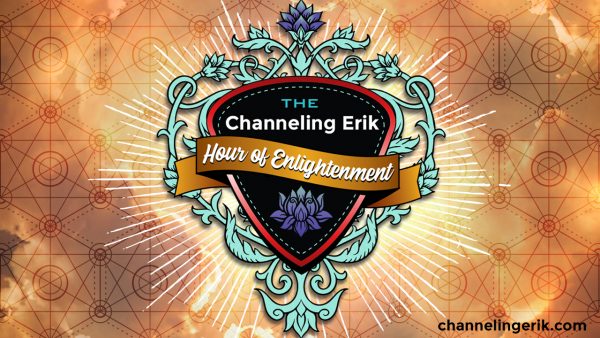The results are in. The majority of you think that the lengths of the posts are just right. I figured they were too long, so I guess I’m just lazier than you guys!
I hope everyone had a great July 4th. Annika came back from her trip to Destin, her last respite before starting medical school August 1st. So, I have all my baby’s home with me. We’re going to move her out of her apartment in College Station into her new apartment near the medical center on Saturday, but I don’t think she’s going to stay there until she starts school. I’m so glad she’s going to be living in Houston and that my eldest daughter is moving back to Houston, too.
In case you forgot, tomorrow at 7 PM CT is Erik’s Hour of Enlightenment radio show. Call 619-639-4606 15 minutes prior to talk to Erik. http://goo.gl/aFHTzJ
Enjoy Part Two of the series on surrender!
Me: And resistance—like you were living in your own resistance—what you resist persists, and that’s what’s behind suffering. When you resist and resist, you suffer and suffer. When I lost Erik, there was a lot of resistance that I had to live through, and that made me suffer even more in my grief. Maybe you can talk about that, how to let go of the grief after the loss of a loved one. That’s a hard one to let go of, the physicality and all. I mean, I still have trouble with it. I feel at peace that you’re happy, and I know that you really exist. There is no doubt in my mind, but I miss the physicality. I miss the face-to-face conversations we used to have and the hugs and things like that. So how can a person let go of that? A lot of our listeners have lost people they love.
Erik (Separating his hands vertically): You ready for a tall order? This is going to be a tall order.
Me: Oh, yeah.
Erik: It requires heart and strength. To truly move through and let go of your grief or rather—
Kim: He’s going back and forth between mind games that we play thinking, “Grief has a hold of me” or “I have a hold of grief.”
Erik: Which is it? Which is it? Oftentimes we think, “Oh, I just can’t get away from THIS like IT has attached to ME,” but in reality, WE have attached to IT as part of our identity. Even in the loss of a loved one, even in getting kicked out of church—
He laughs at Kim.
Erik: –when you can accept what happened or be with the circumstance without employing the emotions, that’s how you can know it for truly what it is so you can move forward, but as soon as we pick up and employ our emotions and use emotional thinking, then it’s related to time, which then pulls us out of the moment and that exacerbates it and makes it worse. So the more present we can be with ourselves and our thoughts—
Kim: He doesn’t want to say “separate” or “disconnected” from emotions because you really can’t be separate from them.
Erik: But understand that they’re there, but you don’t have to become them. You don’t have to pick them up and host them as your sense of self-awareness.
Me: Okay.
Erik: But that’s hard. That’s really hard, when you’ve lost a loved one, to truly rise above and not attach to the emotional dynamics of it. But on the same [unintelligible], you have to allow yourself to feel what you need to feel. Just don’t stay there or you’ll create and attachment. So, you have to be willing to look at things differently. Let’s say, in Kim’s case, getting kicked out of the church. She’ll probably miss the physicality of it.
Kim: Easter. Every Sunday, Jesus! I’ll definitely miss the physicality of that.
Erik: But look at the emotional attachment that you have to that and experience it. Let yourself cry, whatever you gotta do, but don’t stay there. Don’t stay in that state.
Me: Don’t unpack your bags. Carry the bags around, if you want, and open up the suitcase to look at this shirt or that pair of underwear, whatever—I don’t know where that came from! Then close it up and take it along. Don’t unpack your bags and stay.
Erik: Yeah because that’s when you get stuck. That’s when you create stagnation for yourself. Then you create attachments, and it’s one after another after another. You’ll have a hard time moving through that. Be willing to look at it through other perspectives, too, just like you did, Mom. “First, my perspective is that this hurts. This is what I feel. I wish I could have done something to help him.” But then you looked at it from my perspective. “He’s at peace. I’m glad he’s happy; I know he’s free.” So no matter what you’re going through, look at it from different angles in any way you can. That will teach you more about yourself in the long run.
Me: That’s true.
(Long pause)
Kim: I don’t know where this came from. He wants to talk about how people are all talk and no game, which means, I guess—oh, okay! Okay.
Erik: It really boils down to game. People are all talk and no game. “I’m above this. I’m getting better; I’m moving on. We got a divorce and we’re moving on.” They get to that point, and it’s just a phase where they’re all talk and no game. They’re really hiding or trying to stifle emotions because they’re carrying shame.
Me: Shame over what?
Erik: They’ve identified with a circumstance like, “I’m the one that got divorced” or “I’m the kid with no dad.” They start to carry shame. You have to, in the deepest sense, have an identity and an awareness of self outside of everything. That way, as you move through these stages, you can move through them it identifying you and grounding you in these phases, creating stagnation, getting stuck in these different phases. As long as you’re willing to be honest with yourself, you’ll be able to move through these phases effectively, but if you think you can lie to yourself and stifle it, I promise it’ll surface sooner or later. You might develop anger issues. You might develop bipolar issues. That’s because you stifled things for so long so that something that is even slightly related, energetically, will just set you off. We’re gulping all these different circumstances and energies that are related. We’ve created a self. We’ve created a self that knows itself as someone who’s lost a loved one, so that when something similar happens, energetically, and we stifle it down instead of feeling it, we’re building up that little self. Then we have this deep seated energy tied to it. IT is an illusion that needs your attention to exist. That’s why it’s always surfacing and resurfacing. That’s why you see people snap or break down.
Kim: He’s showing me this lady going (screaming,) “Oh my god!”
Erik: At the drop of a hat, some people go off the chart with their emotions because they haven’t taken the time to process things.
Me: Right. I did create a self “I’m a mother who has lost a child” in a very hard way, but I don’t identify with that as much anymore. It’s not a label or identity anymore. It’s just an experience. So maybe, instead of attaching a label to ourselves like, “I’m a doctor” or “I’m a parishioner at this church,” or “I’m a mother who has lost a son,” we should say, “I’m Elisa who has had this experience.” “I’m Kim who has had this experience.” Is that the way to go about it?
Erik: Exactly, Mom, because then you can stay free—or at least freer—from the emotional attachments in any situation. (in a funny voice) Those will get you every time!
Kim laughs.
Me: Attachments, are those the freedom from suffering or is the resistance to the attachments that is the root of suffering?
Erik: Well, attachments create resistance, so attachments are the root of all suffering.
Me: Okay. Are there any good attachments? Is there any such thing as a good attachment?
Erik: There really is no good or bad. The true essence of me, Mom, or the true essence of anybody has no attachments at all. That’s complete peace, complete freedom.
Kim: I’m trying to get him to answer the question, “Are there any good attachments,” and he kind of like—

Surrender



